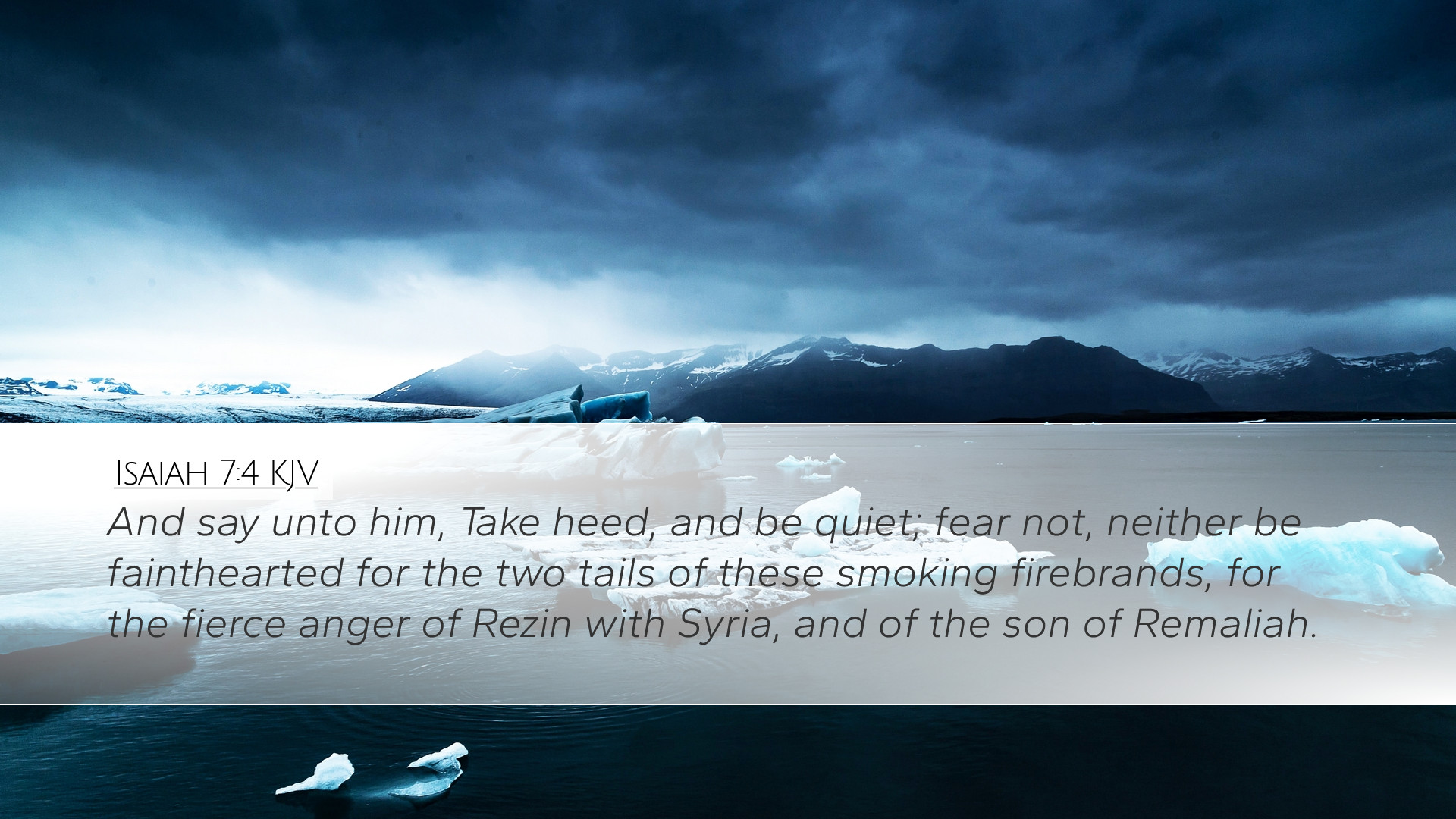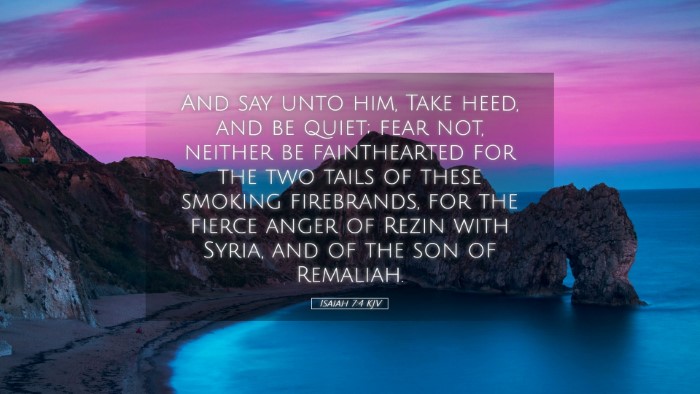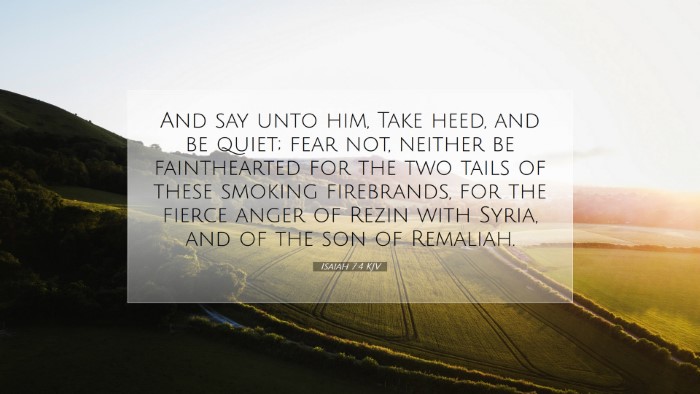Commentary on Isaiah 7:4
Verse Context: Isaiah 7:4 states: “And say unto him, Take heed, and be quiet; fear not, neither be fainthearted for the two tails of these smoking firebrands, for the fierce anger of Rezin with Syria, and of the son of Remaliah.” This verse is situated in a critical moment of Israel’s history, where King Ahaz faced the combined forces of Syria and Israel.
Historical Context
Political Turmoil: The geopolitical landscape during this period was fraught with strife and uncertainty. The kingdom of Judah, under King Ahaz, found itself threatened by the alliance of Syria and the northern kingdom of Israel. The threat was not only military but also psychological, leading to widespread fear among the people.
Exegesis of Isaiah 7:4
Take Heed: The prophetic exhortation to “take heed” indicates a call to vigilance and discernment. This is not merely a caution against external threats but also an internal call to faith and stability in the face of fear.
Quietness: The command to “be quiet” signifies more than silence; it embodies a peaceful composure that arises from trust in God. It reflects a biblical principle seen throughout scripture where calmness stems from reliance on divine sovereignty.
Fear Not: Addressing the fear is essential in this passage. The reassurance, “fear not”, emphasizes God’s control over the situation. For Ahaz, it was a divine assurance that despite the apparent threats, the Lord was with them.
Smoking Firebrands: The description of the attackers as “smoking firebrands” is loaded with meaning. It suggests that their threat is real but transient. They may appear to be a fierce blaze but are essentially weak and doomed to extinguish.
Theological Implications
Trust in God: This passage demands a response of active faith. As William Hengstenberg notes, reassurance from God positions believers to recognize the futility of opposing forces when they stand against divine will.
Insights from Public Domain Commentaries
Albert Barnes
Barnes emphasizes the importance of divine encouragement amid fear. He highlights that the Marvellous counsel of God would provide strength where human resources failed. His commentary suggests that God positions His servants to stand firm irrespective of external adversities.
Matthew Henry
Henry's take on this verse accentuates the profound nature of God’s promises to His people. He notes that even amidst dire circumstances, the call to “be quiet” reflects a divine invitation to rest in God’s assurances, encouraging them to reject panic and remain steadfast through faith.
Adam Clarke
Clarke approaches the fearful situation with a suggestion of pragmatic faith. He points out that God was calling Ahaz to remain calm in what seemed like overwhelming circumstances because the situation, while grave, was under divine oversight. Clarke importantly brings forth the essence of prophetic credibility and the imperative of heeding the divine message.
Applications for Today
The timeless truths contained in Isaiah 7:4 resonate profoundly in today's context for leaders, students, and scholars:
Leadership and Faith: Just as Ahaz faced his fears, modern leaders must confront their challenges with faith, relying on God’s promises rather than succumbing to anxiety.
Community Assurance: For the church today, this verse serves as a reminder of God’s constant presence. Believers are called to encourage each other to remain steadfast and calm in the face of external pressures.
Personal Reflection: Every individual is encouraged to reflect on their own fears and to consider how this verse speaks to their situations. In personal crises, God’s message remains: “Fear not.”
Conclusion
Isaiah 7:4 serves as a powerful testament to God’s sovereignty amidst external crises. The call to heed, be quiet and fear not compels both individuals and communities to anchor their faith in divine assurance and truth. As scholars and ministers delve deeper into this scripture, may they find renewed strength and encouragement to face their challenges with courage and calmness.


